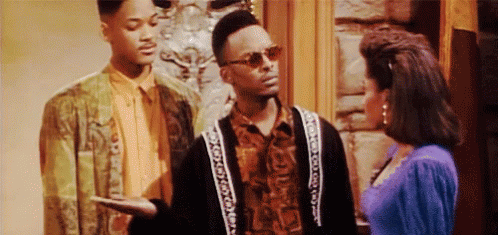
Unrealistic career expectations have the power to either make or break us. We all have our own career expectations and aspirations—those dreams we have about landing the perfect job, climbing the career ladder at warp speed, and maybe even discovering a secret shortcut to success.
But many of us have already been served a reality check that, often, these expectations are a bit … well, unrealistic. (Personally, I wanted to be an astronaut. You get the idea.)
So, why do we have such expectations?
In essence, these are the vivid images we paint for ourselves about our professional journeys—the job roles we aim to take on, the levels of success we aspire to achieve, and the overall trajectory we envision.
Whether it’s the influence of success stories on social media, the pressure to have it all figured out by a certain age, or maybe just a touch of youthful optimism, we’ve all been there. We dream big, and that’s fantastic!
Dreaming is the spark that ignites ambition. However, the downside is when these dreams become rigid expectations, setting us up for a potentially rocky road ahead.

But here’s the thing …
Unrealistic expectations can be a double-edged sword
On one side, they drive us to aim high, to shoot for the stars. But on the flip side, they can lead to frustration, burnout, and even a sense of failure when reality doesn’t quite match the fantasy. Imagine thinking you’ll land your dream job straight out of college only to find yourself in an entry-level position. It’s not a failure; it’s a reality check.
Now, why is it so crucial to align our expectations with reality?
Well, it’s primarily about setting ourselves up for success in a way that’s sustainable and meaningful. Imagine you’re planning a cross-country road trip. You set realistic goals for each day, accounting for rest stops and detours. Now, imagine planning that trip without a map, expecting to teleport from coast to coast. That’s a bit like having unrealistic career expectations.
It’s easy if you start from the beginning—because aligning expectations isn’t about lowering the bar; it’s about setting the right bar to begin with. It’s also about recognising that the journey to success often involves unexpected twists and turns—that such surprises don’t mean the end of your whole career.
Think about it as recalibrating your GPS. You’re still headed toward your destination, but now you’re open to different routes and enjoying the scenic detours. This approach not only reduces stress but also opens doors to opportunities you might not have considered.
Being flexible will buff your progress
Let’s consider nature for a moment. Have you heard of this fable about a neem tree and the bamboo? It’s a children’s story that might be a little niche, but essentially, the mighty and proud neem tree looked down upon the humble bamboo. Later, when a particularly harsh storm rolled in, the neem was struck and fell over. The bamboo, on the other hand, weathered the storm mostly unscathed. How?
See, where a rigid tree might snap in a storm, a flexible one is likely to bend and survive. Similarly, aligning our career expectations with reality is like giving ourselves the flexibility to weather the storms of uncertainty. (As corny as that sounds, it’s true.)
When things get stormy with your career progress, you’ll need to switch lanes—be flexible.
It’s not about abandoning dreams but about allowing them to evolve organically—in a way that suits you.
The first step to this is …
Discovering yourself before your career goals
Aligning expectations is also a journey of self-discovery. Remember, you might not know all the answers right away—and that’s absolutely okay! Your early career experiences are a fleet of opportunities waiting to be discovered.
One surefire way to identify where your strengths and weaknesses lie is to carry out a SWOT analysis. This goes hand in hand with personal development plans—a must-do step which is also a great method of understanding yourself better!
A beginner’s mindset
Now, let’s get practical. How do you figure out the first steps of your career journey? International Career Coach and Early Career Strategist Kithmi Pathirana, Recruitment and Customer Experience Manager at Capital Placement shares some insights.
“What you need to do is to have a beginner’s mindset so that you can learn different things from an internship or from your very first job. Learn as much as you can from your very first job or internship by staying open to different tasks without restricting yourself to a particular area,” Kithmi advises.
“Think of it as going to a buffet where you get to try different things. That way, you find out what you like, what you don’t like, what you’re really good at, and what you’re not good at (before you commit),” she adds.
But just as a varied and delectable buffet spread might have its own little oddities, careers also split off into niches. Some may be the future, while others may have a much shorter shelf life. On this, Kithmi recommends: “Try not to fall into niche areas because niche is something you want to get into eventually after you understand what you are good at and not good at, what you like and what you don’t like.”
To build a career, you need longevity but specialising in a niche is not uncommon at all! But it must be done with purpose and ample analyses or you’ll potentially find yourself struggling to reconcile your career aspirations with a niche that isn’t taking off.
So, what can you do to ensure you’re on the path you want to be on? Here are Kithmi’s suggestions!
Build a network
Building and maintaining connections is half of all the work you’ll do in your professional life. Use this opportunity to surround yourself with mentors, peers, and industry experts who understand the realities of the professional world. Follow them on social media to keep up with their perspectives, attend seminars (virtual or in-person), converse with them and ask questions, etc. They’ll provide guidance, share experiences, and maybe even pass on a few unique pieces of advice for when you need that extra boost.
Research is your best ally
At a time where everything—from the phone in our hands to the cake on our plates—is capable of processing huge amounts of information and delivering it to our fingertips, ignorance is a choice.

Staying informed about your chosen industry, any upcoming trends, and potential challenges is absolutely crucial. It’s not about becoming a Wiki page on it; it’s about having a well-equipped toolbox to navigate the complexities of your chosen field.
If there are any major disruptions that could make finding and keeping work in a field difficult, you’ll want to be informed so you can navigate these obstacles better.
Why should you care?
After all this, you might be wondering, “But why should I care about my career expectations? Why should I do all this research and planning?” Understanding what you want from your career is quite important, and there are several reasons why! Let’s dive into a few.
Make choices you’re less likely to regret
Knowing what you want from your career is like having a roadmap. It guides you to make choices that fit your overall career plan, so each step you take makes sense.
Work won’t feel ‘painful’
When you know what you expect from your job, you can look for roles and workplaces that match your values. This makes your job more enjoyable because it’s in line with what you care about.
Pick up the right skills
Understanding your career expectations helps you figure out what skills you need to succeed. You can then work on developing these skills, making you a valuable asset in your field.
Tangible achievements
Your career expectations are like the building blocks for setting goals. These goals, whether short or long-term, give you a clear path for growing in your career. Having a clear understanding of your career aspirations allows you to set goals you know you can reach.
Encourages personal growth
Knowing what you want from your career pushes you to think about yourself and how you can grow. It’s like a journey of self-improvement that keeps going throughout your career.
Guides your learning plan
Clear career expectations help you make choices about education and training. Whether you’re going back to school or getting extra training, you make sure it’s actually useful for your career.
Makes networking easier
If you can talk about what you want from your career, it makes networking simpler. You can connect with people who might guide you or help you because they understand what you’re aiming for.
Avoid career confusion
Knowing your career expectations stops you from ending up in a job that doesn’t fit. It acts like a buffer against frustrations that arise when you feel like you’re stuck in a job that’s not right for you.
Final thoughts
Careers change, and that’s okay. Knowing what you expect from your career helps you go with the flow, adapt to changes, and grab new opportunities. When your work matches your career expectations, you’re more likely to be happy in the long run. It’s about finding purpose and satisfaction in your work.
Figuring out your career expectations is a solid step that puts you in control of your professional story. It makes things clear, helps you make good decisions, and sets the stage for a career that feels just right.
Finally, aligning your expectations with reality is not about settling; it’s about crafting a narrative that’s dynamic, fulfilling, and uniquely yours. Embrace the unexpected, learn from detours, and savour the journey. Remember, success isn’t always a straight line—it’s the sum of all the twists, turns, and triumphs along the way.
If you’re thinking about kicking off your career but don’t know where to start, book a call with us! Let’s talk about it. You can also subscribe to our newsletter for the latest career information, tips, and updates. (They’re both completely free!)



